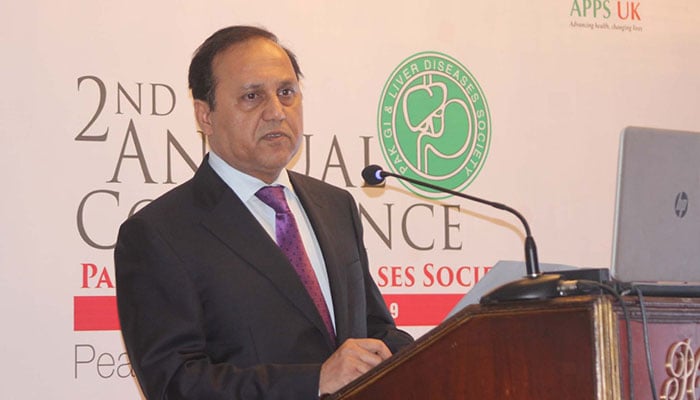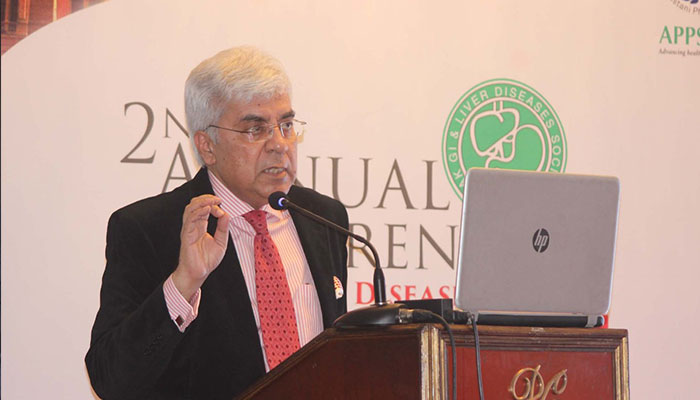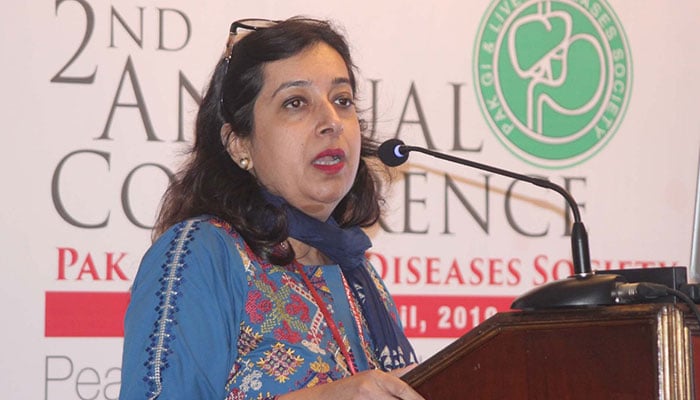
KARACHI: Sindh Secretary Health Saeed Awan on Saturday said tha the government was facing immense difficulties in hiring trained and qualified medical specialists for its tertiary-care hospitals in the province therefore it needs cooperation and support from private health sector and NGOs to provide quality health facilities to the people of Sindh.
“Provision of health facilities and services to people is responsibility of the government but due to financial constraints, provincial government cannot fulfil this task alone. We very much need support and cooperation from the private sector, NGOs and medical community to meet the health needs of our people”, Saeed Awan said while speaking at the 2nd Annual Conference of Pak GI and Liver Disease (PGLDS) Society here at a local hotel.
Dozens of international and international speakers from Azerbaijan, Middle Eastern and European countries are presenting their papers and presentations at the three-day conference on stomach diseases, hepatitis and related illness and advancements in their treatment is being organized by the PGLDS.
Provincial health secretary maintained that Sindh health department was immense facing difficulties in hiring trained and qualified specialists for its tertiary-care hospitals although billions were being spent to provide state-of-the-art medical facilities to people free of charge and added that in this scenario, contribution of private health sector and NGOs becomes very crucial in provision of health facilities to masses.
“In order to facilitate people, we have launched public private partnerships with PPHI, Hands, IHS, for provision of health services and also with the Aga Khan University for the treatment of Hepatitis B and C, initially in three districts of Sindh including Larkana, Shikarpur and Shaheed Benazirabad ”, Saeed Awan maintained.
He maintained that contaminated water was the main source of gastrointestinal diseases including diarrhea and Hepatitis A and called for adopting preventive measures against these water-borne diseases, saying such conference could help in creating awareness among masses about consumption of clean drinking water.
Eminent healthcare professional and Managing Director of Liaquat National Hospital (LNH) Prof. Dr. Salman Faridi errors occur in every profession because an effective monitoring system does not exist in the country in any sector and added that mistakes are even committed by journalists, judges, lawyers and economists but only the errors of medical professionals are highlighted.
“Medical profession is part of society and reflects the overall situation of our society. Not only doctors but people from all segments of society should be ethical and follow the ethics. Mistakes are made by everybody but pointing fingers and witch-hunt is not the solution to any problem”, Dr. Faridi maintained.
He spokes about advancements in the medical sciences, terming intestine as the second brain in the human body where microorganisms are responsible for most of the disease and also play a role in cure but added that provision of primary healthcare was the main issue of people of Pakistan, who had no access to clean drinking water and basic health facilities near their abodes.
Renowned gastroenterologist Prof. Waseem Jaffri spoke about continuous training of the gastroenterologists so that they could utilize best available medical interventions to the people and avoid committing mistakes.
President of the PGLDS Dr. Sajjad Jamil said they had started their journey as a small group to train young doctors and now their group had become a national society which was being acclaimed internationally and young physicians as well as mid-career doctors were joining them to learn the advancements in the field of gastroenterology and hepatology.
Dr. Nazish Butt, Vice President of the PGLDS said their society was striving for screening and treatment of the Hepatitis B and C patients in the peripheries of the city for quite some time and offered their services to the government in screening and treatment of Hepatitis patients in Sindh, saying they could help the authorities achieve the global target of Hepatitis C eradication by 2030.
Dr. Lubna Kamani and Dr. Shahid Ahmed spoke on different advancements in the diagnosis, treatment and management of the Hepatitis B and C while experts from different cities of the country and abroad discussed stomach ailments including ulcer, Gerd, Non-Alcoholic Fatty Liver Disease (NAFLD), obesity, water-borne diseases and advised people to adopt healthy lifestyle, eat healthy and balanced diet and exercise regularly to prevent themselves from many preventable diseases.
 Jago Times "English Edition" Best Online Newspaper
Jago Times "English Edition" Best Online Newspaper


